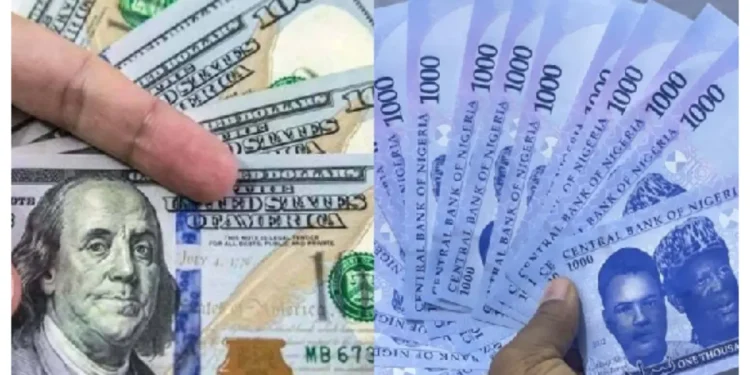The naira recorded its strongest appreciation of 2025 at the close of October, strengthening to ₦1,421.73 per dollar at the Nigerian Foreign Exchange Market, according to data from the Central Bank of Nigeria (CBN).
Throughout October, the naira traded below the ₦1,500/$ threshold at the official market, reflecting a period of stability and gaining 3.63 per cent from ₦1,475.34/$ as of September 30, 2025. Its weakest point during the month was ₦1,475.35/$ on October 17, 2025.
At the parallel market, the domestic currency showed similar resilience, closing at ₦1,450.00/$ on Friday, according to data from CardinalStone.
In its weekly FX market review, AIICO Capital attributed the naira’s appreciation to increased foreign portfolio investor activity, which boosted dollar supply and eased demand pressures.
“The Nigerian naira appreciated during the week, buoyed by improved foreign currency supply from foreign portfolio investors who sold USD positions, boosting market liquidity and easing demand pressures.
The steady inflow of foreign funds strengthened supply conditions across key benchmarks, resulting in a consistent appreciation of the naira as USD availability outpaced demand,” said AIICO Capital.
The investment firm added that the naira gained 2.48 per cent week-on-week to close at ₦1,421.73/$.
Meanwhile, Nigeria’s external reserves rose to $43.17bn as of October 30, 2025, up from $42.35bn on September 30, 2025, reflecting a monthly increase of $819m, or 1.93 per cent. This marks a steady build-up in foreign assets, indicating stronger external buffers.
Analysts project that the local currency will maintain stability in the coming weeks, supported by key economic fundamentals.
In its macroeconomic report, CSL Research linked the naira’s resilience to increased domestic fuel production and a stronger current account surplus.
“A key driver behind this performance has been the resilience of the external sector, even amid relatively weak global oil prices. The current account balance recorded a surplus of about $5.3bn in Q2 2025, up from $2.9bn in Q1 2025,” CSL Research stated.
The report attributed the improvement to reduced imports and modestly higher export earnings, adding that increased output from the Dangote Refinery has helped cut Nigeria’s import bill and ease FX demand.
CSL also pointed to renewed confidence among foreign investors, noting that Nigeria has become one of the most attractive emerging markets for carry trade investors, thanks to elevated interest rates and exchange rate stability.
“We estimate that offshore investors who subscribed to one-year OMO bills in late 2024, when stop rates averaged around 24 per cent and the exchange rate was roughly ₦1,650/$, would be realising a net return of about 36 per cent in US dollar terms at current exchange rates,” it noted.
The report concluded that sustained CBN interventions, combined with rising offshore inflows and stronger trade balances, have supported the naira’s recent gains — setting the tone for continued currency stability in the months ahead.















